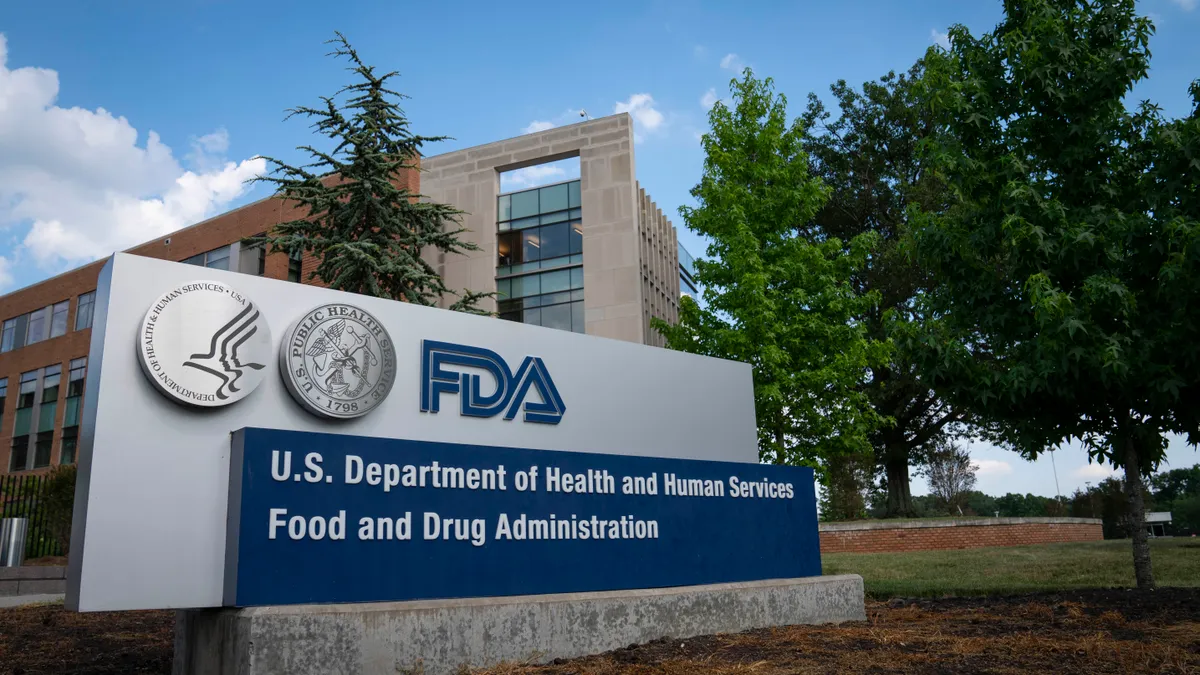Dive Brief:
- The Food and Drug Administration’s Center for Devices and Radiological Health plans to start accepting pre-submission requests for in vitro diagnostics starting on June 1, including for tests not related to COVID-19. This would reverse a policy adopted by the agency in April 2021 to decline some pre-submission requests as it sought to prioritize pandemic work.
- In a Wednesday town hall meeting, Tim Stenzel, the FDA’s director of in vitro diagnostics and radiological health, cautioned that reviews would likely still be done under an extended timeline as the agency continues to receive emergency use authorization submissions.
- Stenzel also discussed a memorandum of understanding signed by the FDA, the Centers for Disease Control and Prevention, the American Clinical Laboratory Association, AdvaMed and five other parties to create surge capacity for testing before and during public health emergencies. Specifically, the CDC would identify academic medical centers or private clinical laboratories with the capacity to participate in emergency responses.
Dive Insight:
The FDA in January restarted accepting pre-submissions for in vitro diagnostics that would require premarket authorization or de novo clearance. Now, the agency plans to accept pre-submissions for tests that would go through its 510(k) pathway, including tests unrelated to COVID-19.
“And so, we're back to normal in the sense that we're now reviewing all types of applications,” Stenzel said at Wednesday’s meeting. “However, due to the continued elevated workload due to COVID, it's likely that these IVD pre-submissions will initially be reviewed under an extended timeline.”
The FDA said it continues to receive about 120 requests per month for emergency use authorizations and pre-EUA submissions. Most of these are for in vitro diagnostic tests.
The agency also noted in a May 31 notice that it had started receiving submissions from companies looking to transition from emergency use to clearance or approval.
During Wednesday’s town hall meeting, test developers asked what would be the best pathway right now for COVID-19 tests. Stenzel said getting an EUA “continues to be the easiest pathway to get on to the U.S. market with a COVID test,” either for tests to detect SARS-CoV-2 alone or in conjunction with other viruses.
“We do recommend though that the developers consider their long-term interests as far as whether they want to be on the market long term,” Stenzel added, noting that companies can start working on 510(k) submissions for molecular tests or de novo submissions for antigen tests.
Stenzel also addressed questions about whether the FDA will stop taking new EUA submissions in the next few weeks.
“We are trying to get back to normal. But I know I don't know when and if any changes will occur,” Stenzel said, adding that there are still a number of tests in the pipeline that could be authorized.
In total, the FDA has received more than 8,000 EUA requests and pre-EUA submissions since January 2020. So far this year, the agency has received almost 1,000 requests.











